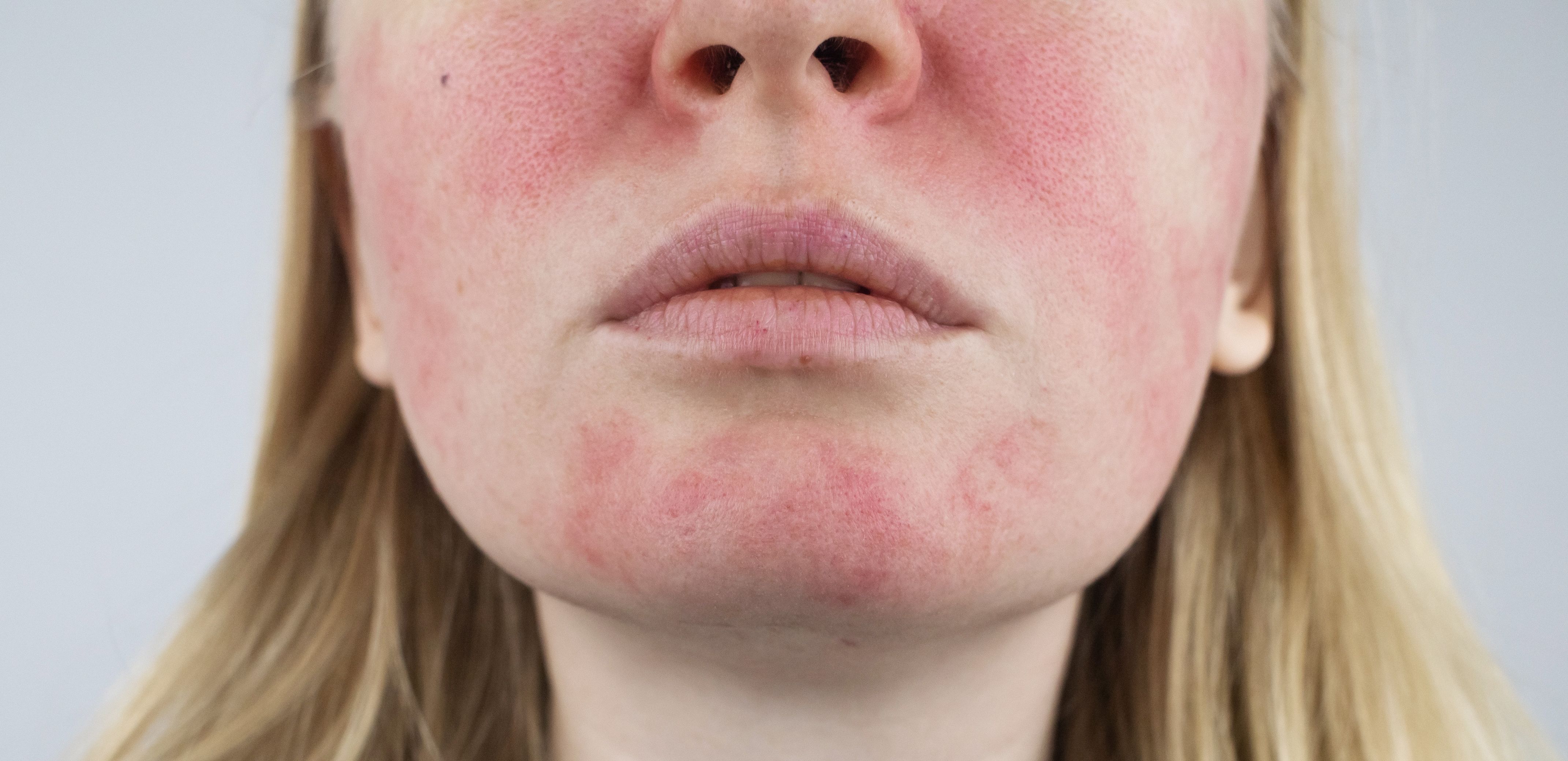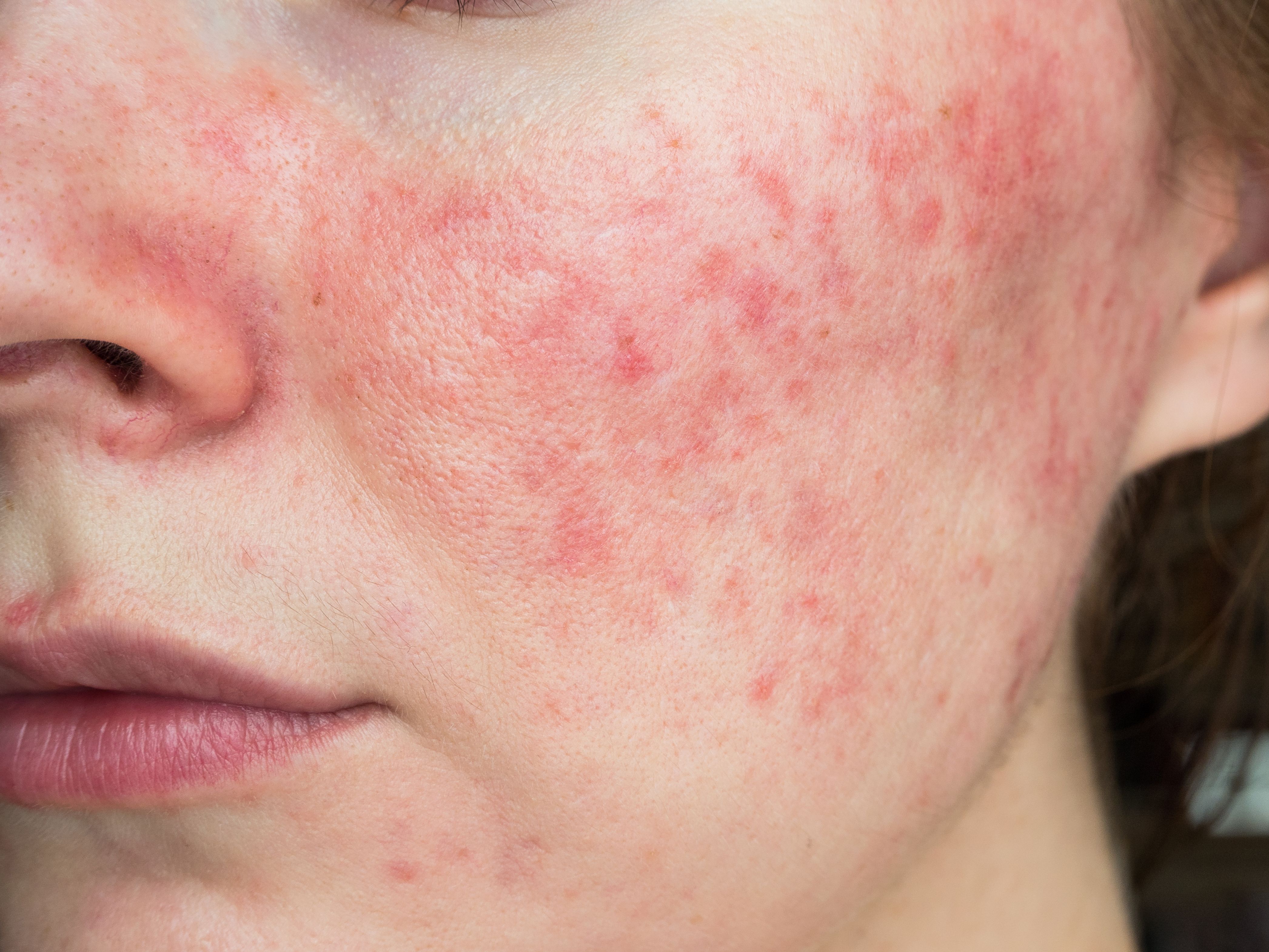- Case-Based Roundtable
- General Dermatology
- Eczema
- Chronic Hand Eczema
- Alopecia
- Aesthetics
- Vitiligo
- COVID-19
- Actinic Keratosis
- Precision Medicine and Biologics
- Rare Disease
- Wound Care
- Rosacea
- Psoriasis
- Psoriatic Arthritis
- Atopic Dermatitis
- Melasma
- NP and PA
- Skin Cancer
- Hidradenitis Suppurativa
- Drug Watch
- Pigmentary Disorders
- Acne
- Pediatric Dermatology
- Practice Management
- Prurigo Nodularis
- Buy-and-Bill
News
Article
QUIZ RECAP: Test Your Knowledge of Rosacea Complications and Comorbidities
Author(s):
Earlier this week, we shared our second Rosacea Awareness Month quiz. Review the answers and your responses below.
This week we asked the question: How much do you know about rosacea and its complications and comorbidities?
Haven't taken our quiz yet? Pause before reading below and follow this link to complete it: here.
Below, we recap our second quiz and the correct answers to each question.
Question 1: Which of the following is a potential complication of rosacea?
Response options: Eczema; Ocular rosacea; Psoriasis; Acne vulgaris
Correct response option: Ocular rosacea
Individuals with ocular rosacea experience dry, irritated, and swollen eyes and eyelids. These eye symptoms can occur before, after, or alongside skin symptoms. In some individuals, it may also occur as a precursor to facial rosacea types.1
Question 2: Which skin condition is often comorbid with rosacea?
Response options: Atopic dermatitis; Melanoma; Contact dermatitis; Seborrheic dermatitis
Correct response option: Atopic dermatitis
Individuals with rosacea may also have atopic dermatitis simultaneously. Both prevalent chronic inflammatory skin conditions are characterized by similar symptoms such as redness and hypersensitive skin. Distinguishing between the two can be challenging due to their similar presentations. In the United States, approximately 14 million individuals suffer from rosacea, while over 31 million people are affected by eczema.2
Question 3: Which of the following eye problems can be associated with ocular rosacea?
Response options: Glaucoma; Cataracts; Blepharitis; Macular degeneration
Correct response option: Blepharitis
Blepharitis is a common condition, particularly among individuals with rosacea or ocular rosacea. It is chronic in nature, characterized by periods of remission and exacerbation, and although it cannot be cured, it can be effectively managed.3
Question 4: What is a common gastrointestinal issue that can be linked to rosacea?
Response options: Gastritis; Irritable bowel syndrome; Pancreatitis; Cholecystitis
Correct response option: Irritable bowel syndrome
Recent research has linked rosacea and digestive issues, with findings suggesting a connection between gut health and the manifestation of rosacea symptoms. The studies have also determined potential links between small intestine bacterial overgrowth and irritable bowel syndrome, for example.4
Question 5: Which of these psychological conditions may be associated with rosacea?
Response options: Depression; Schizophrenia; Parkinson's disease; Multiple sclerosis
Correct response option: Depression
The psychosocial impact of rosacea can be profound, leading to severe emotional distress and impairment. Individuals with rosacea often experience embarrassment, low self-esteem, and may avoid social interactions due to their condition. These factors can contribute to the development of psychiatric disorders such as depression and anxiety.5
References
- Mayo Clinic. Rosacea - Symptoms and causes. Mayo Clinic. Accessed April 18, 2024. https://www.mayoclinic.org/diseases-conditions/rosacea/symptoms-causes/syc-20353815
- Wartella E. Rosacea and eczema: Living with both. MyEczemaTeam. April 29, 2022. Accessed April 18, 2024. https://www.myeczemateam.com/resources/rosacea-and-eczema-living-with-both
- Dry Eye Specialist. Blepharitis & ocular rosacea. DryEyeSpecialist.com. Accessed April 18, 2024. https://dryeyespecialist.com/blepharitis-ocular-rosacea/
- Brown K. The link between rosacea and IBS/SIBO. Verywell Health. May 9, 2022. Accessed April 18, 2024. https://www.verywellhealth.com/the-link-between-rosacea-and-ibs-sibo-4000518
- Heisig M, Reich A. Psychosocial aspects of rosacea with a focus on anxiety and depression. Clin Cosmet Investig Dermatol. 2018;11:103-107. March 6, 2018. Accessed April 18, 2024. doi:10.2147/CCID.S126850
Newsletter
Like what you’re reading? Subscribe to Dermatology Times for weekly updates on therapies, innovations, and real-world practice tips.







